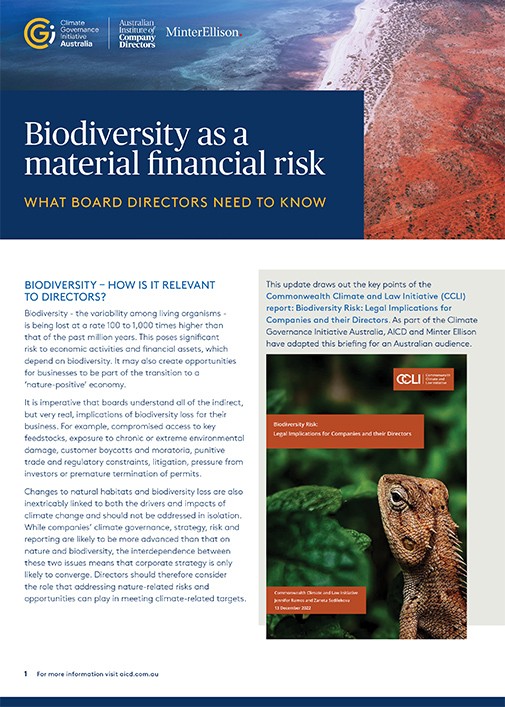Australian directors need to understand the implications of biodiversity loss for their business. A company’s dependencies and impacts on biodiversity can create risks and opportunities, either directly by affecting ecosystem services on which the company depends, or indirectly by negatively affecting other parties, creating potential reputational and/or legal risks.
These risks and opportunities are particularly acute in Australia, being one of 17 mega diverse countries on earth disproportionately affected by biodiversity and nature loss, and with one of the highest rates of species decline among countries in the OECD.
Changes to natural habitats and biodiversity loss are also inextricably linked to both the drivers and impacts of climate change and should not be addressed in isolation. Directors should consider the role that addressing nature-related risks and opportunities can play in meeting climate-related targets.
The forthcoming frameworks of the Taskforce on Nature-related Financial Disclosures (TNFD) and the International Sustainability Standards Board (ISSB) may lead to companies being obliged to make biodiversity risk disclosures in financial reports over time in Australia.
As part of the Climate Governance Initiative Australia, AICD and Minter Ellison have adapted a briefing, Commonwealth Climate and Law Initiative (CCLI) report: Biodiversity Risk: Legal Implications for Companies and their Directors, for an Australian audience.
It covers:
- Companies’ dependencies and impact on biodiversity
- Assessment and disclosure of biodiversity risks and opportunities
- Market, social, regulatory and legal contexts
- Questions directors should be asking to assist their oversight of biodiversity risk
Latest research
Already a member?
Login to view this content


